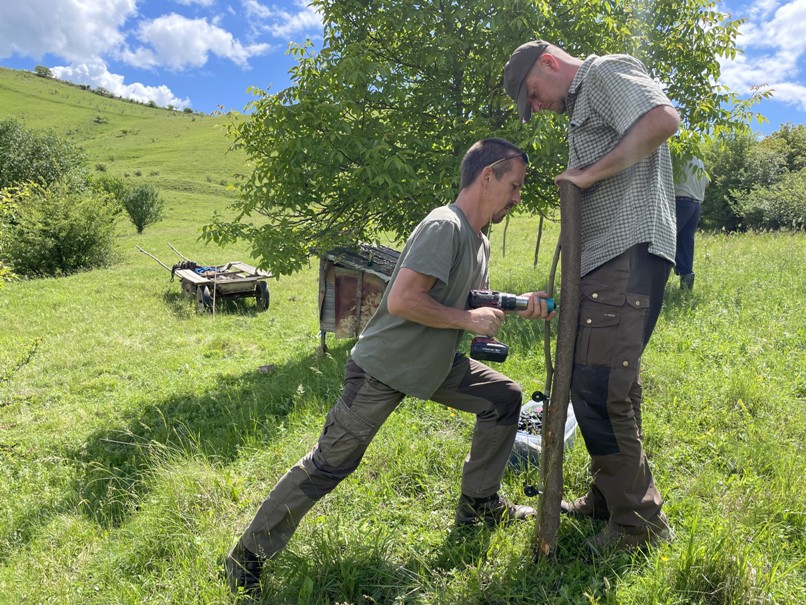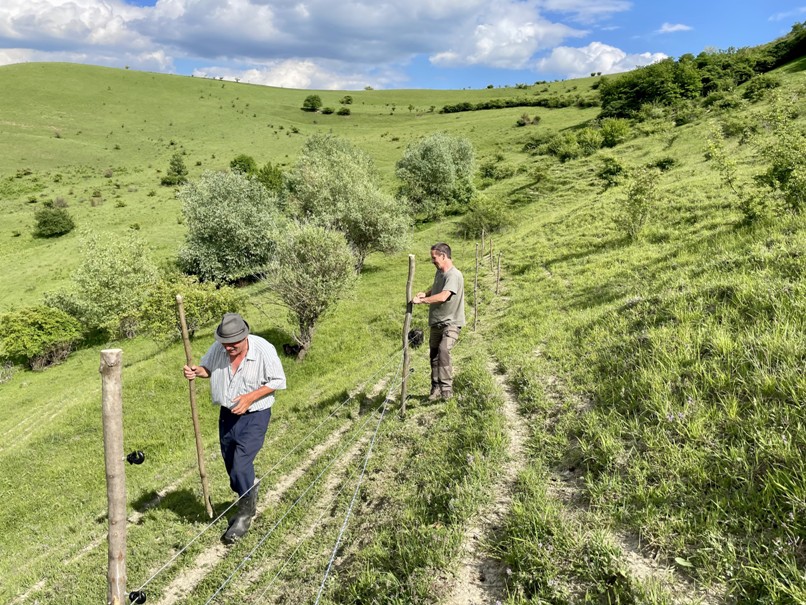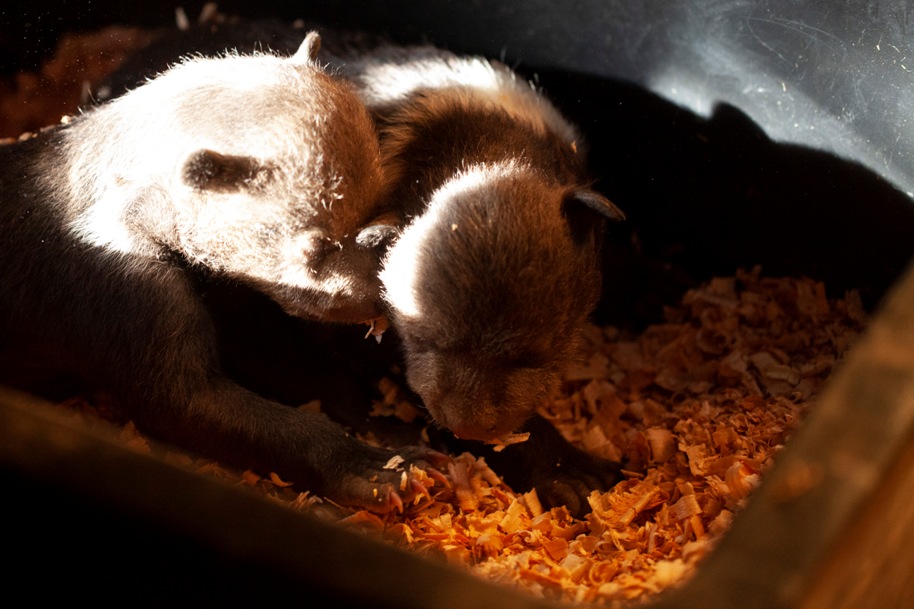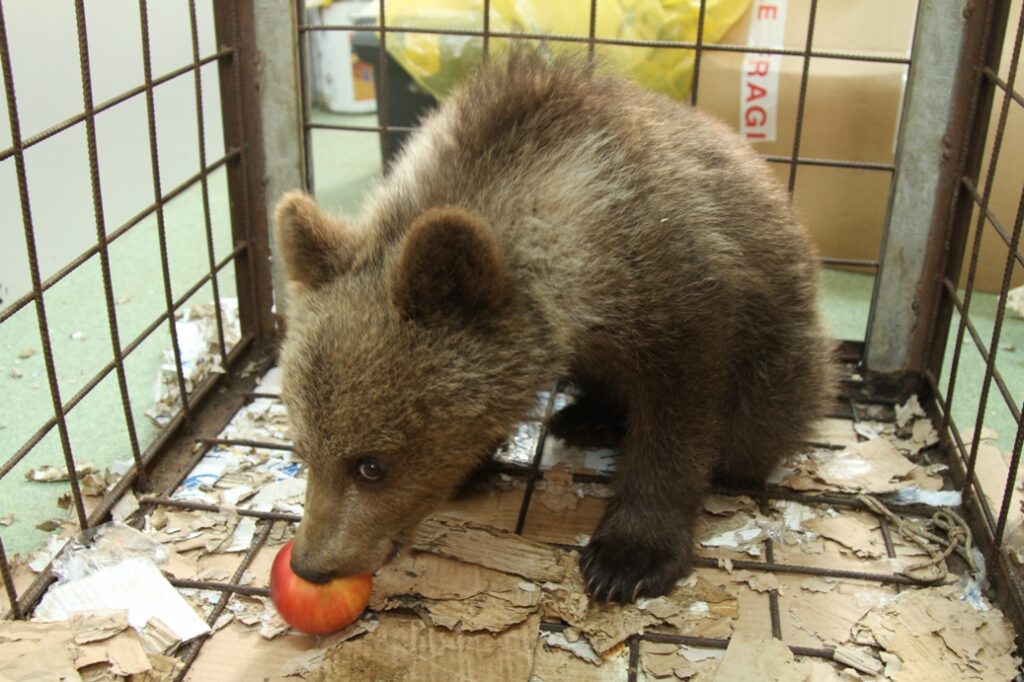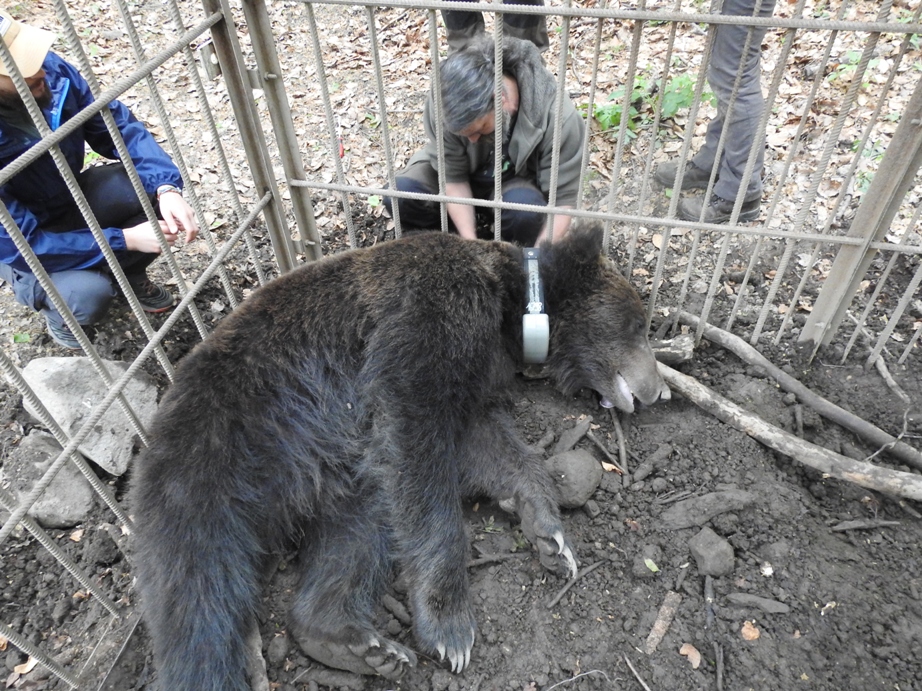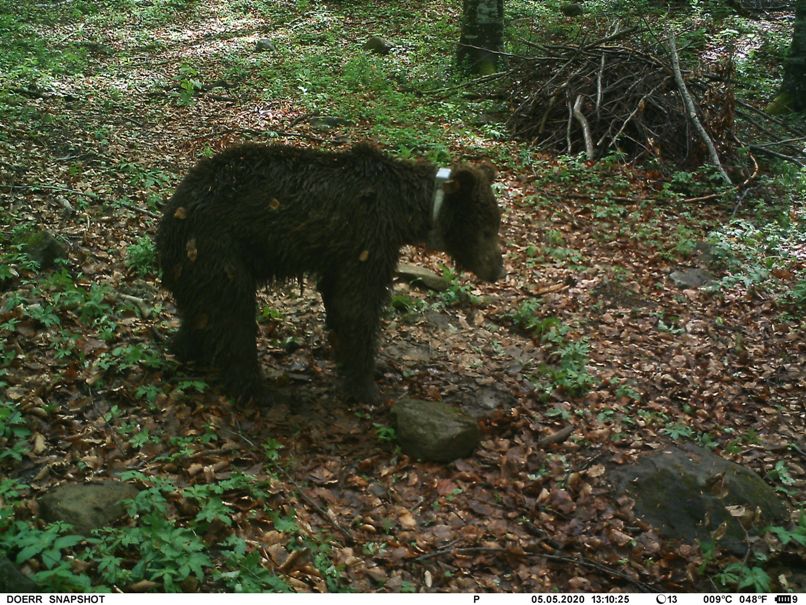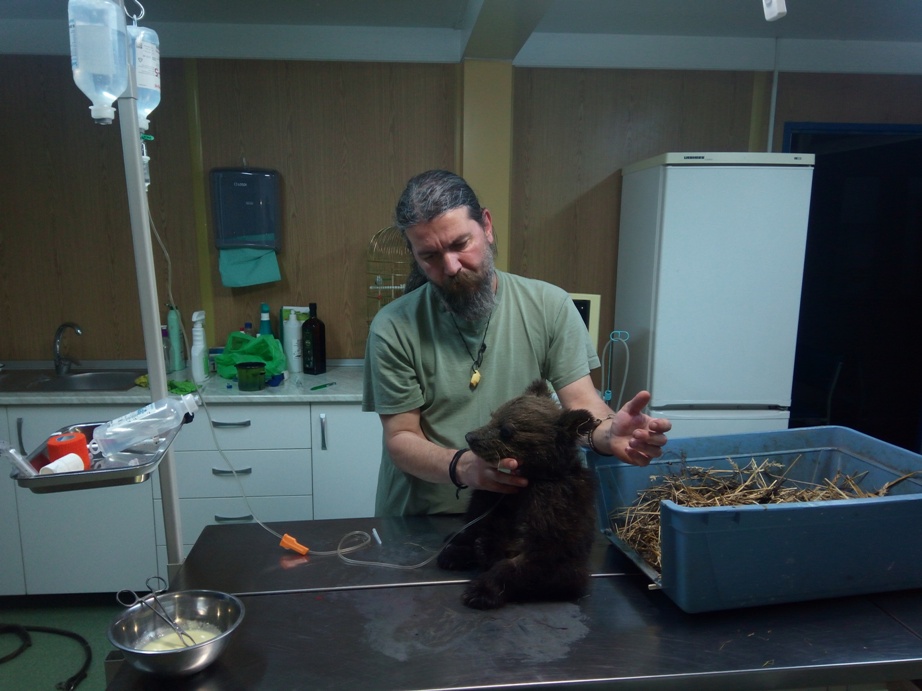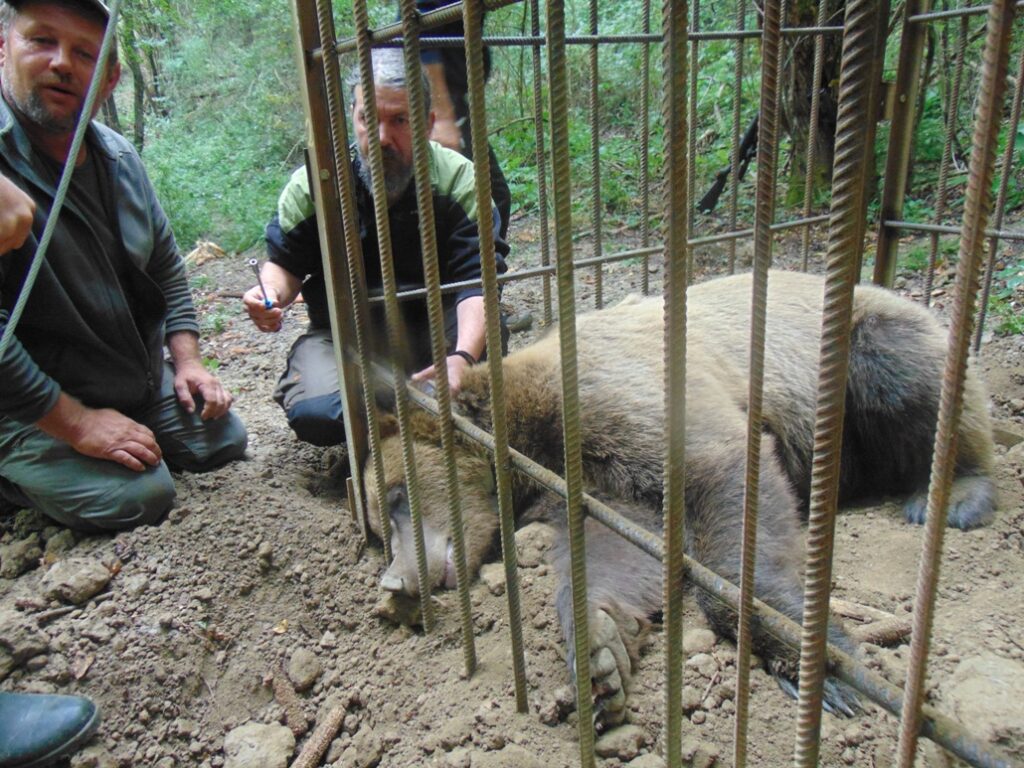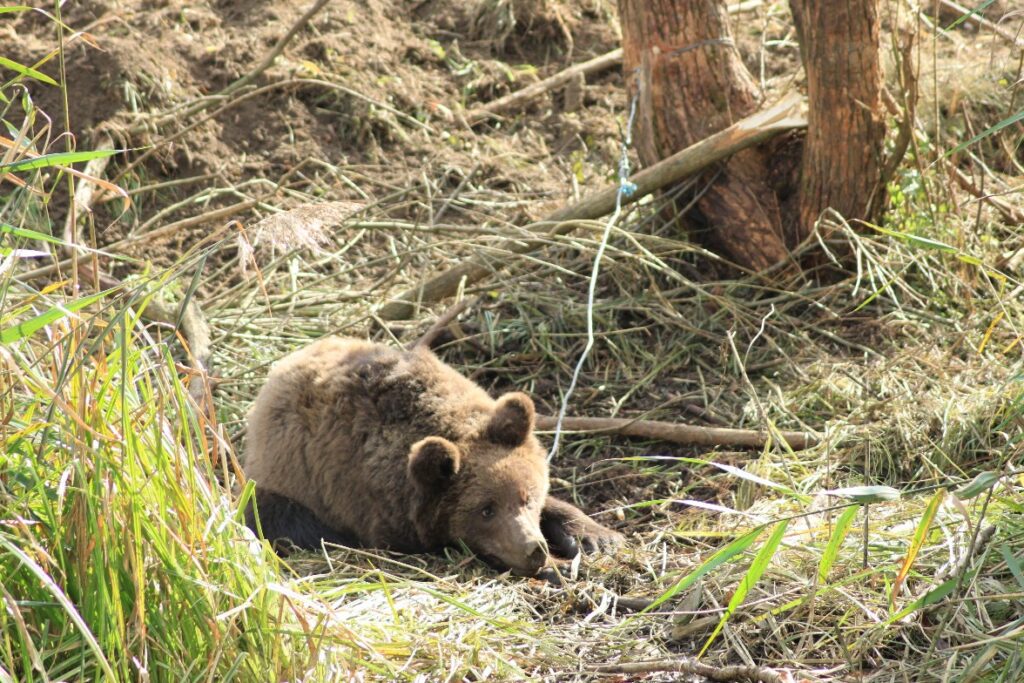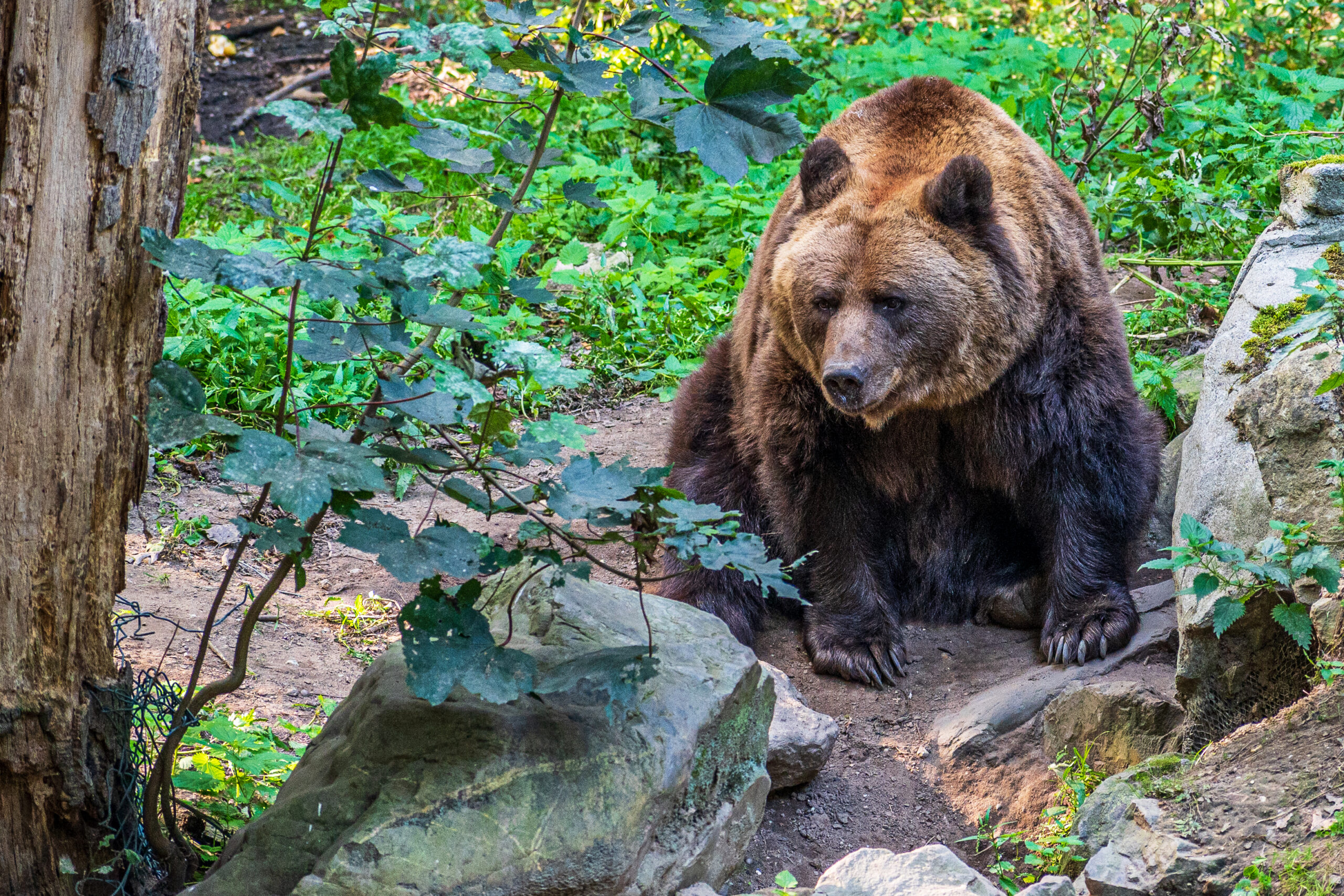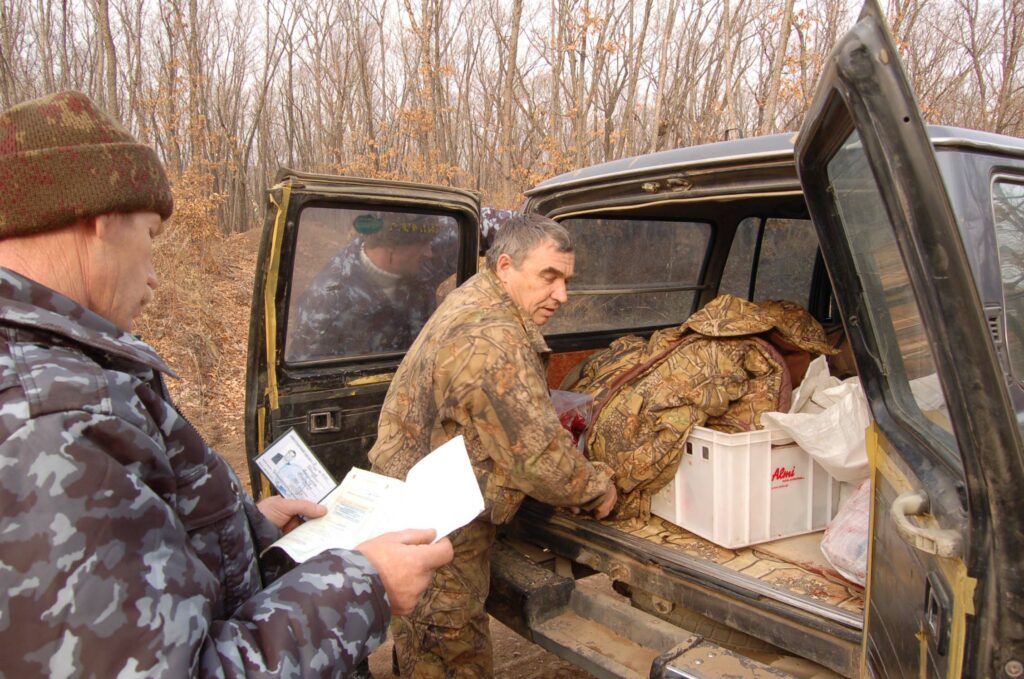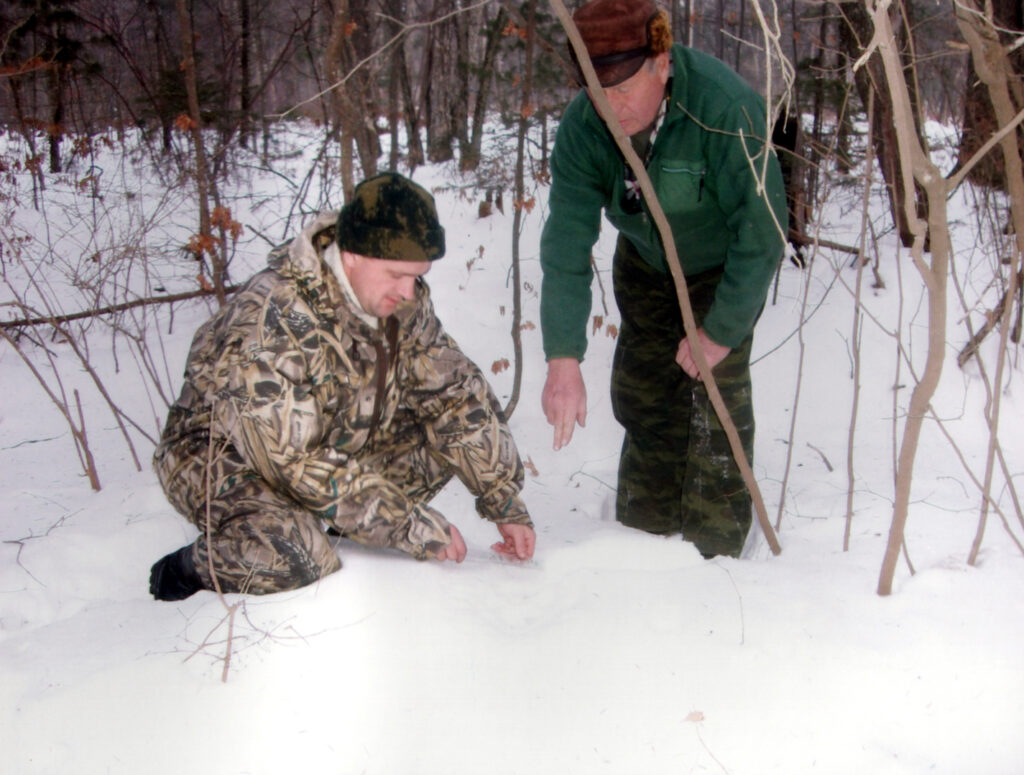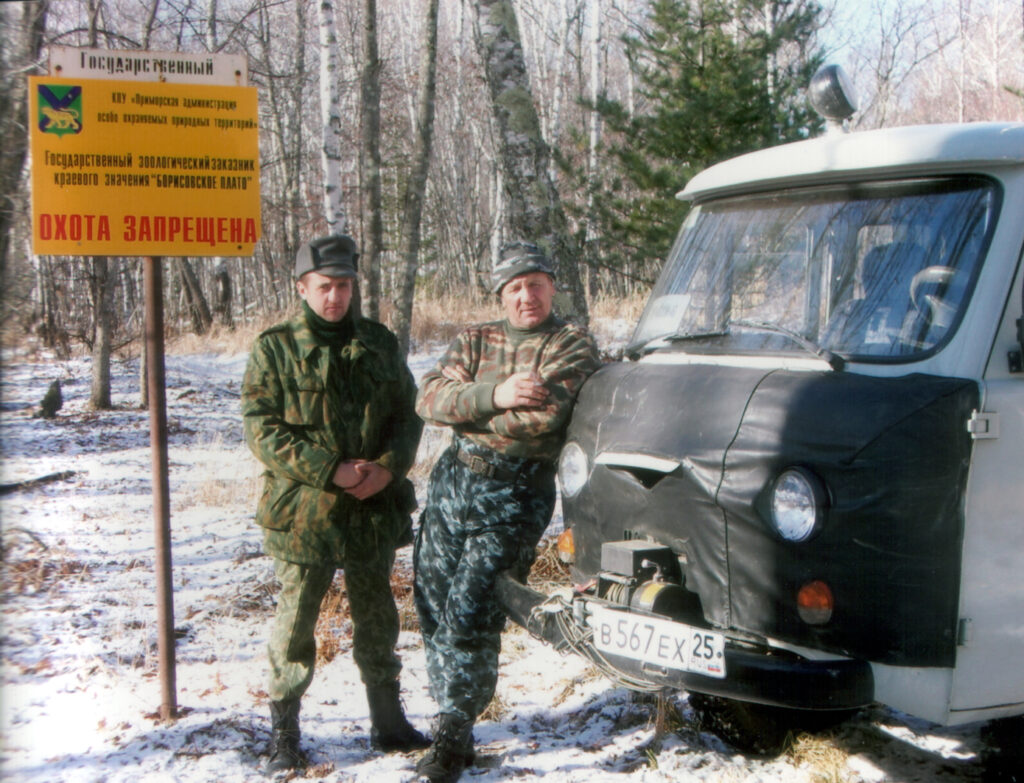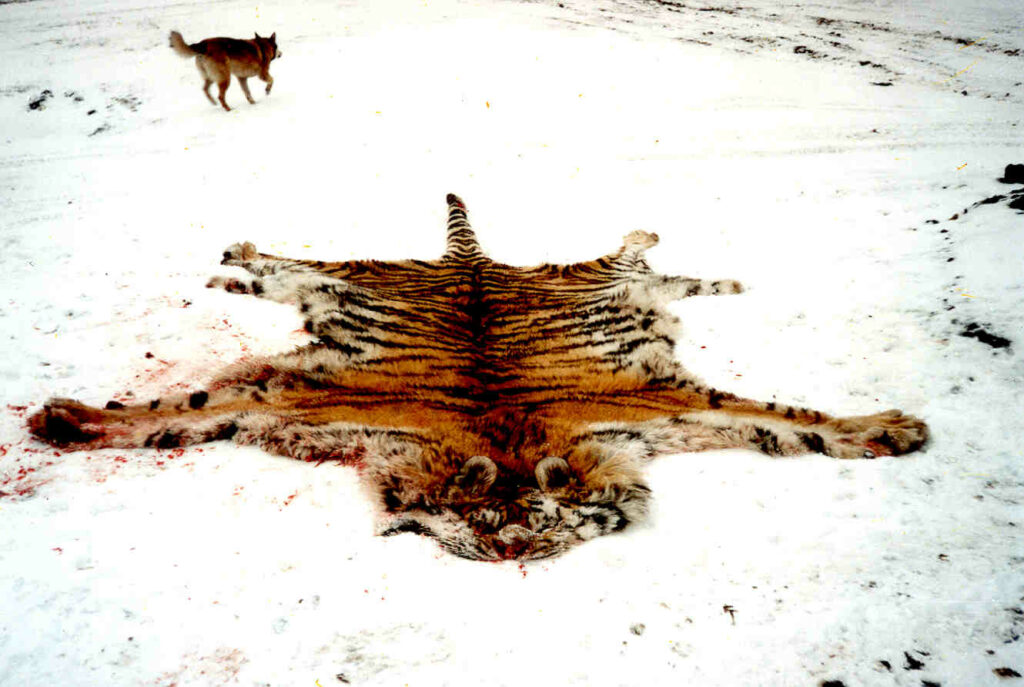This project titled “Brown bear conservation and research program in a model area in Romania” is one of the longest continual projects supported by Bears in Mind, started in 2006. It has many topics, focusing on research on the bear population and conservation of bears in the Eastern Carpathians in Romania, with the aim to prevent bear-human conflicts. Damages caused by bears to livestock and crops are closely monitored. Research on denning behaviour and locations, knowledge about bear home ranges, movement and activity patterns, habitat use and food searching behaviour of the bears, is also carried out. Over the years, many bears have been fitted with radio collars to monitor their behaviour and gather as much data as possible.
Together with the help of local farmers, electric fences surrounding orchards and beehives are tested and placed. Milvus participates in public discussions on bears, organizes educational projects in schools, field excursions and develops educational material. They are mitigating plans for a new highway through prime bear habitat and have done extensive research on the impact on the population. Additionally, every year Milvus receives dozens of calls about orphaned (sometimes injured) bear cubs. After treatment by Vets4Wild (partner of Milvus), the cubs are sent to the rehabilitation centre run by Bear Again.
Improving the social acceptance of the species
Since 2018, Bears in Mind provides funding for a campaign to improve the acceptance of bears in Romania. Through a ten-episode mini-series, Milvus aimes to spread correct and factual information on bears, to try to counterbalance the omnipresent negative rhetoric (and frequent misinformation) in the Hungarian and Romanian massmedia. Each episode was realized in both Hungarian and Romanian languages, with both versions having English subtitles (these can be switched on in YouTube, CC button for Episode 1, and are embedded in each subsequent episode). Each episode was shared on Milvus Group’s own Facebook page, on YouTube, as well as on the Milvus Group webpage. For the shares on our Facebook page, we also had funding to advertise each episode. Ten episodes have been produced:
- Episode 1 about Wintering: https://youtu.be/XT-k4q2voaI
- Episode 2 about Bear Cubs: https://youtu.be/tjho6pRP0FY
- Episode 3 about Reproduction: https://youtu.be/5W5uoSFOg9M
- Episode 4 about Radio Telemetry: https://youtu.be/YhDcZaBQR1I
- Episode 5 about Bear Diet: https://youtu.be/JkCbXJJJFHg
- Episode 6 about Bear Relocations: https://youtu.be/jBBdpQG9q1Y
- Episode 7 about Bears & Roads: https://youtu.be/30w1uaOCl0M
- Episode 8 about Bear Facts & Misbelieves: https://youtu.be/FnAziHF8qTM
- Episode 9 about Damage Prevention: https://youtu.be/Bn655U7ZdEM
- Episode 10 about Bear Feeding: https://youtu.be/tui0M1bMCRo?si=N3wUiJZFnbWBQBQg
